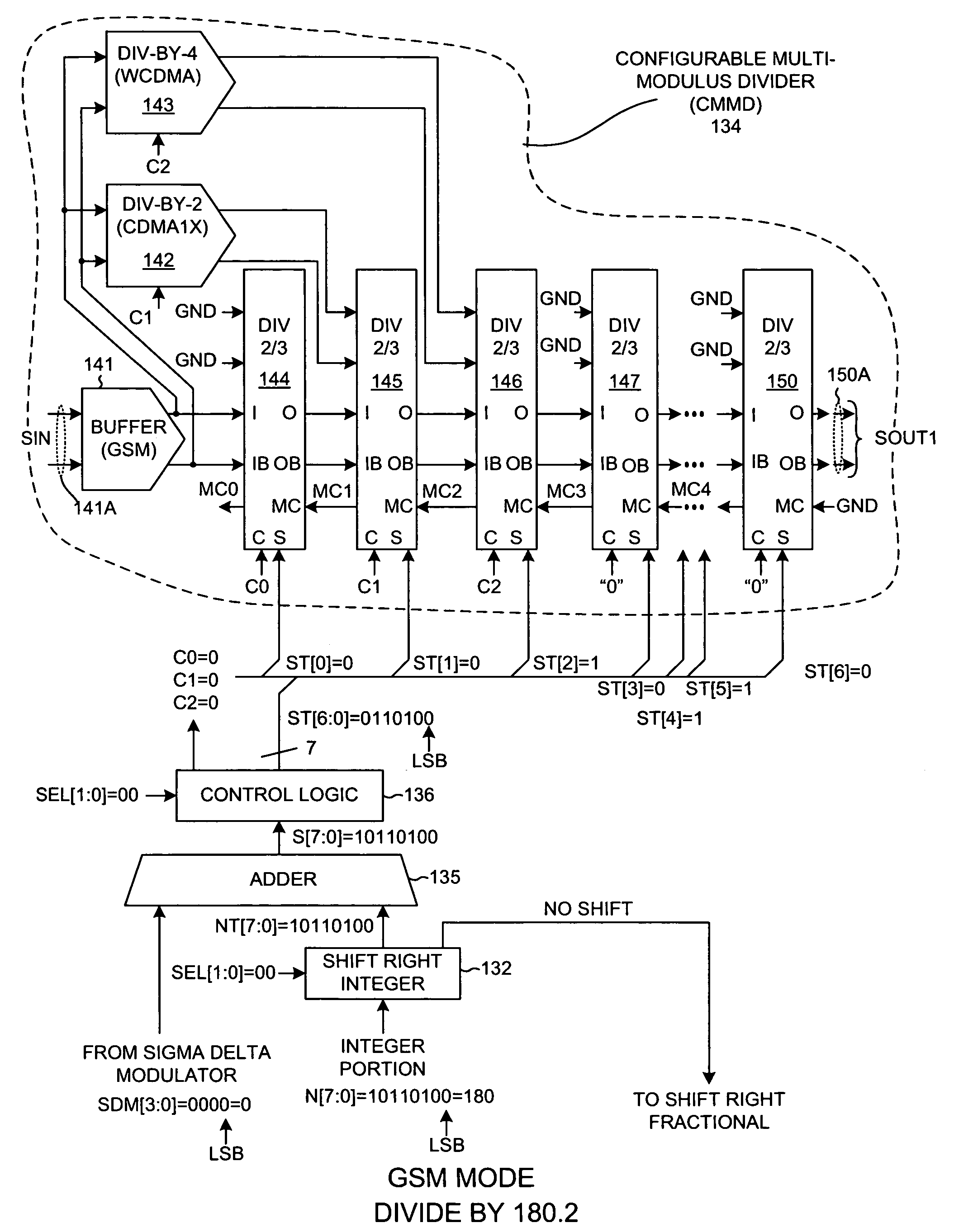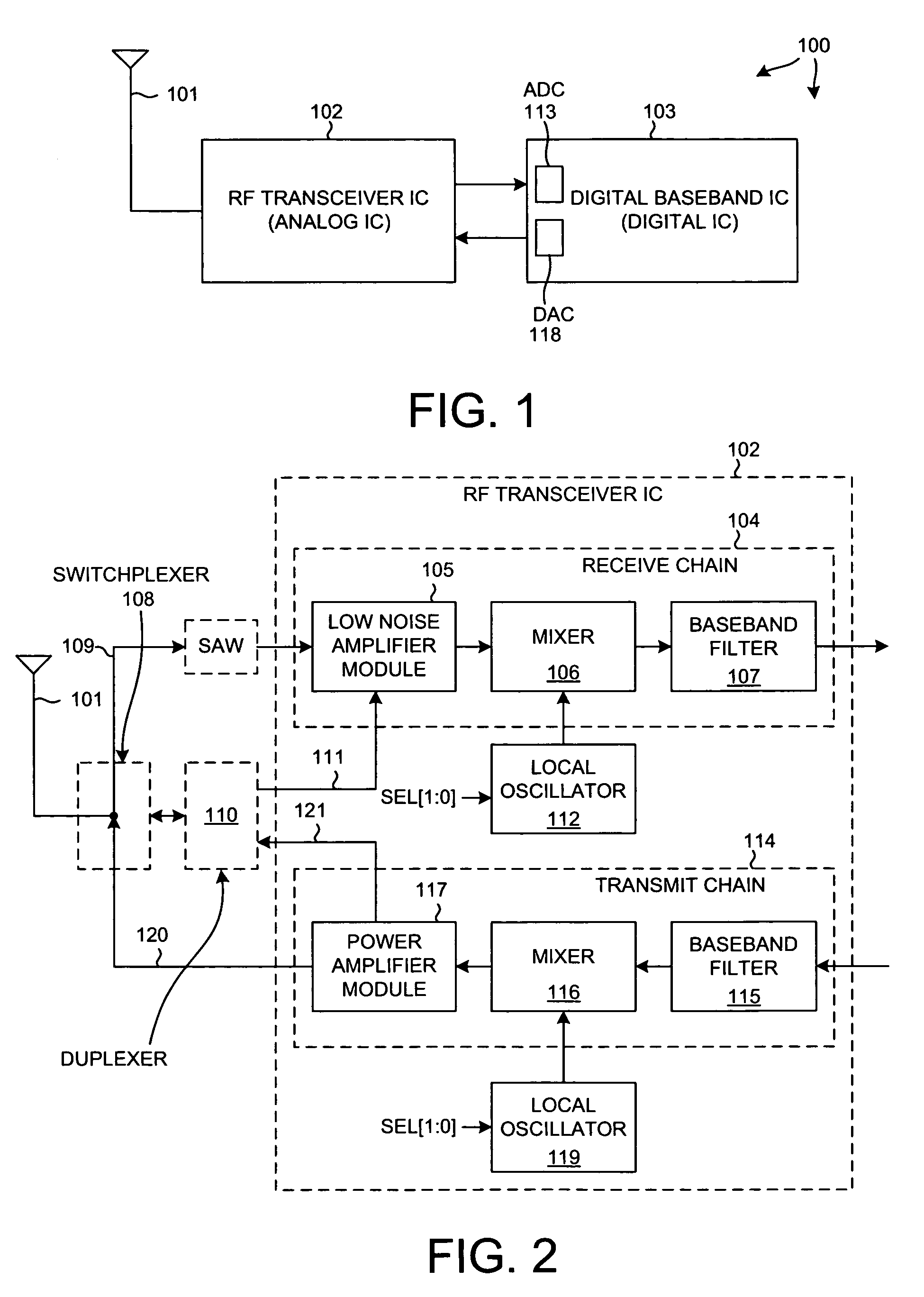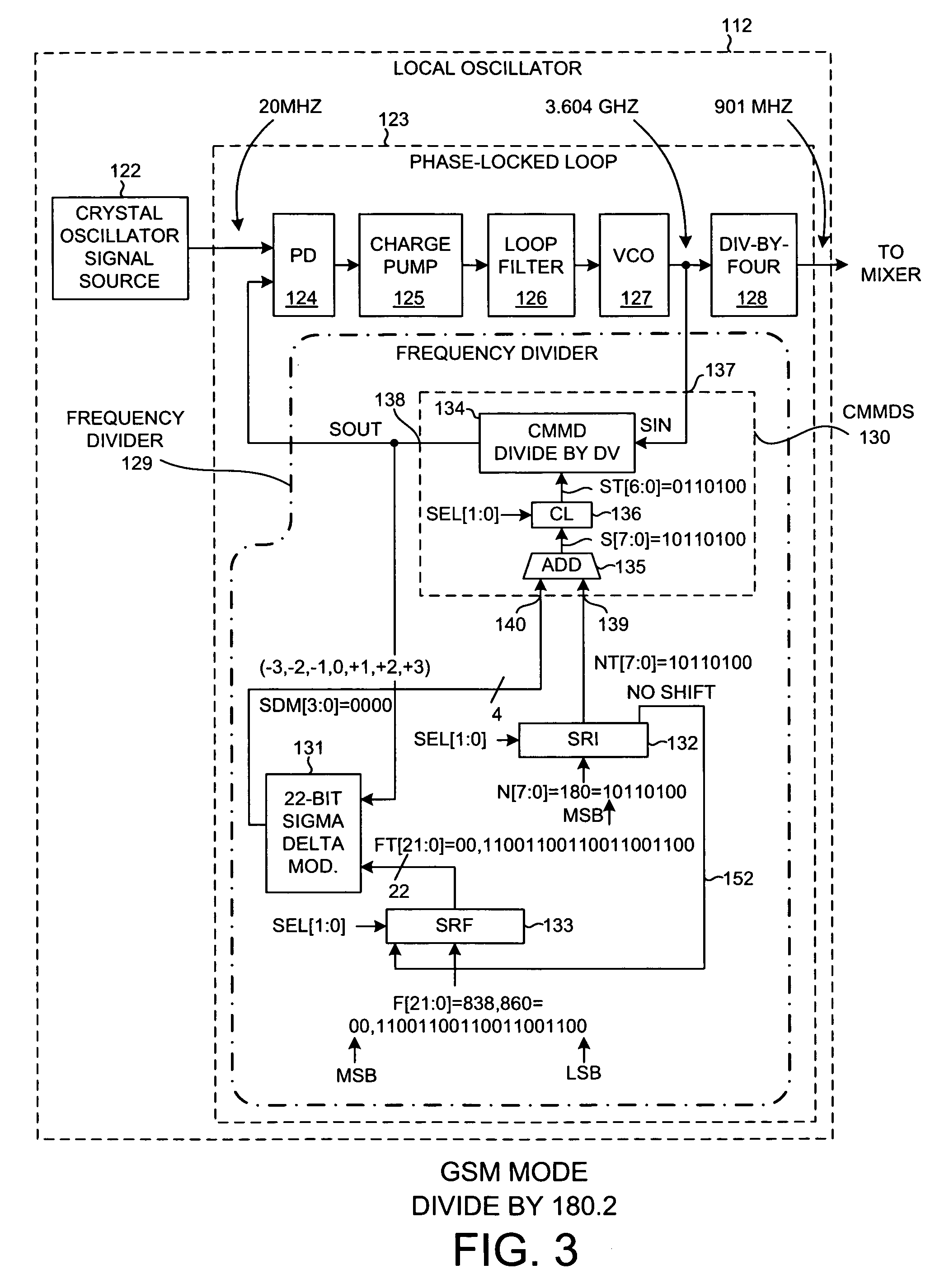Configurable multi-modulus frequency divider for multi-mode mobile communication devices
a multi-modulus, mobile communication technology, applied in pulse automatic control, pulse technique, climate sustainability, etc., can solve the problems of frequency divider consuming an undesirably large amount of power, frequency divider producing an amount of noise, and consuming an amount of power, so as to achieve less noise, increase the power consumption of a configuration, and reduce the effect of power consumption
- Summary
- Abstract
- Description
- Claims
- Application Information
AI Technical Summary
Benefits of technology
Problems solved by technology
Method used
Image
Examples
Embodiment Construction
[0035]FIG. 1 is a simplified diagram of a mobile communication device 100 in accordance with one novel aspect. Mobile communication device 100 in this case is a cellular telephone. The cellular telephone is able to communicate using a selectable one of multiple different cellular telephone standards. The cellular telephone can communicate using one standard, and then switch and begin communicating using another standard. Each of the standards places different spurious noise, phase noise and frequency resolution requirements on the local oscillators (LO) in the receiver and transmitter. In the example of FIG. 1, cellular telephone 100 is able to communicate in a selectable one of three cellular telephone standards: GSM (the Global System for Mobile Communications standard, CDMA1X (Code-Division Multiple Access 1X) and WCDMA (Wide-Band Code-Division Multiple Access). Cellular telephone 100 includes an antenna 101 and several integrated circuits including a novel radio frequency (RF) t...
PUM
 Login to View More
Login to View More Abstract
Description
Claims
Application Information
 Login to View More
Login to View More - R&D
- Intellectual Property
- Life Sciences
- Materials
- Tech Scout
- Unparalleled Data Quality
- Higher Quality Content
- 60% Fewer Hallucinations
Browse by: Latest US Patents, China's latest patents, Technical Efficacy Thesaurus, Application Domain, Technology Topic, Popular Technical Reports.
© 2025 PatSnap. All rights reserved.Legal|Privacy policy|Modern Slavery Act Transparency Statement|Sitemap|About US| Contact US: help@patsnap.com



